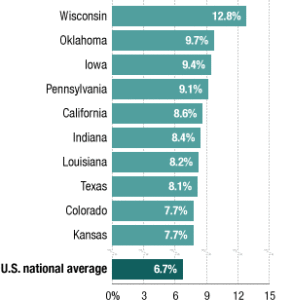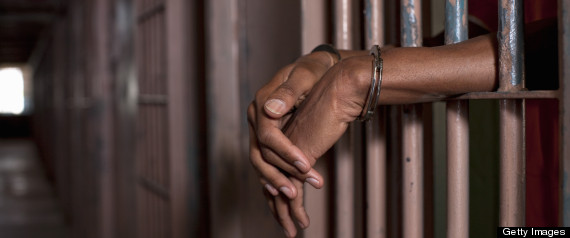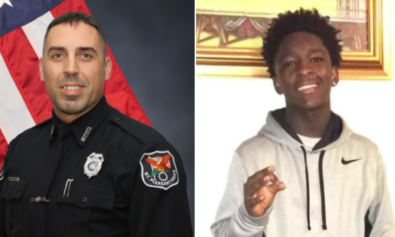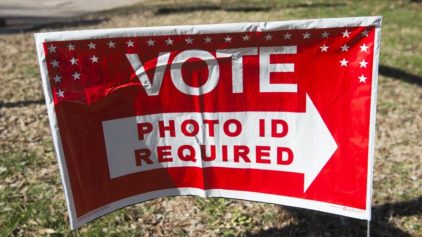Community organizers in Wisconsin are banding together in an attempt to figure out why the state is leading in the mass incarceration of Black men.
Church leaders put together a forum to launch discussions about the troubling rate at which Black men are being jailed in the state.
According to a 2013 report from the University of Wisconsin-Milwaukee Employment and Training Institute, Wisconsin has the highest rate of incarcerating African-American men among all states in the U.S.
The report stated that Wisconsin’s incarceration rate for Black men was almost double the national average of 6.7 percent.
Wisconsin is also ranked as the worst state for the overall well-being of Black children in the U.S.
When Pastor Brenda Atlas of Bethel A.M.E Church in Beloit learned of this statistic, she felt obligated to do something.
Atlas organized the public forum where members of the community came together to discuss recidivism, truancy and city government, neighborhood policing and much more.
The forum also featured a variety of speakers who all had different experiences with law enforcements in the state.
One presenter, Mark Smith, opened up about his experiences being labeled as a felon since he was only 20 years old.
Smith explained that once a Black man is labeled as a felon, the rest of his life is plagued by one bad decision.
“We need to be careful of the propaganda we are told,” he said. “If a man is a felon, he doesn’t deserve a job, he doesn’t deserve a chance, he doesn’t deserve to feed his children.”
Smith said the entire community shunned him and even his own family began to treat him differently.
The other speakers at the forum included Butch Martin of Overflowing Cup who discussed re-entry and recidivism, social worker Dara McAllister and Chief Norm Jacobs of the Beloit Police Department.

According to Beloit Daily News, members of the community discussed creating a rehabilitation center for youth you have already committed crimes.
Others focused on how to address the problem of nonviolent offenders being incarcerated in the same environment as violent, career criminals.
While a clear solution was not found during the forum, it did manage to create awareness of the sheer size of the problem.
“I didn’t know we had that many people in prison,” said Alta Melvin, who attended the event because her son was one of the organizers.
With the community coming together to launch a serious discussion and pitch possible solutions, the people of Beloit and other Wisconsin communities hope to see a change in the Black male incarceration rate over the next few years.



